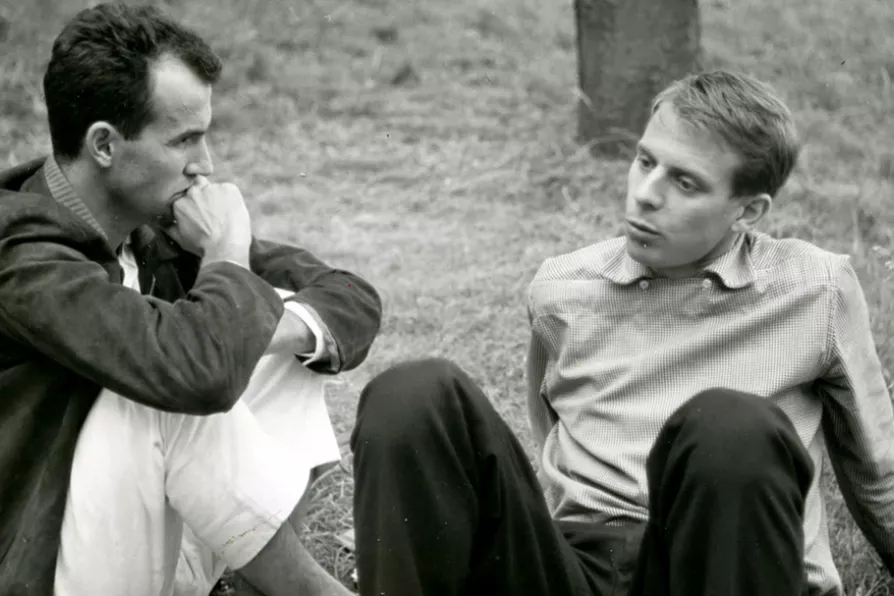ALAN McGUIRE welcomes the complete poems of Seamus Heaney for the unmistakeable memory of colonialism that they carry

 KINDRED SPIRITS: Luigi Nono and Karlheinz Stockhausen in Darmstadt, summer 1957
[Seppo Heikinheimo/CC]
KINDRED SPIRITS: Luigi Nono and Karlheinz Stockhausen in Darmstadt, summer 1957
[Seppo Heikinheimo/CC]
LUIGI NONO is one of the most significant composers of the last century and one of the major voices who epitomises both modernism and Marxism in music.
Born January 29 1924, Nono was deeply involved in political struggle. Having been active within the Italian resistance against Mussolini and joining the Communist Party of Italy (PCI) in 1952 (becoming a member of the central committee in 1975), Nono searched to tie his political convictions with his musical aspirations.

New releases from Toby Hay, Bruce Springsteen, Bonnie Dobson & The Hanging Stars

New releases from Steve Tilston, FolkLaw, and Patch and the Giant

New releases from Mountain, Soul Asylum and Michael McDermott

STEVE JOHNSON, CHRIS SEARLE and TONY BURKE review new releases from Steve Knightley, Jupiter & Okwess, Jason Palmer, Lisa Knapp and Gerry Driver, Kin'Gongolo Kiniata, Ingrid Laubrock/Tom Rainey, Dan Sealey, Simin Tande, PAZ










